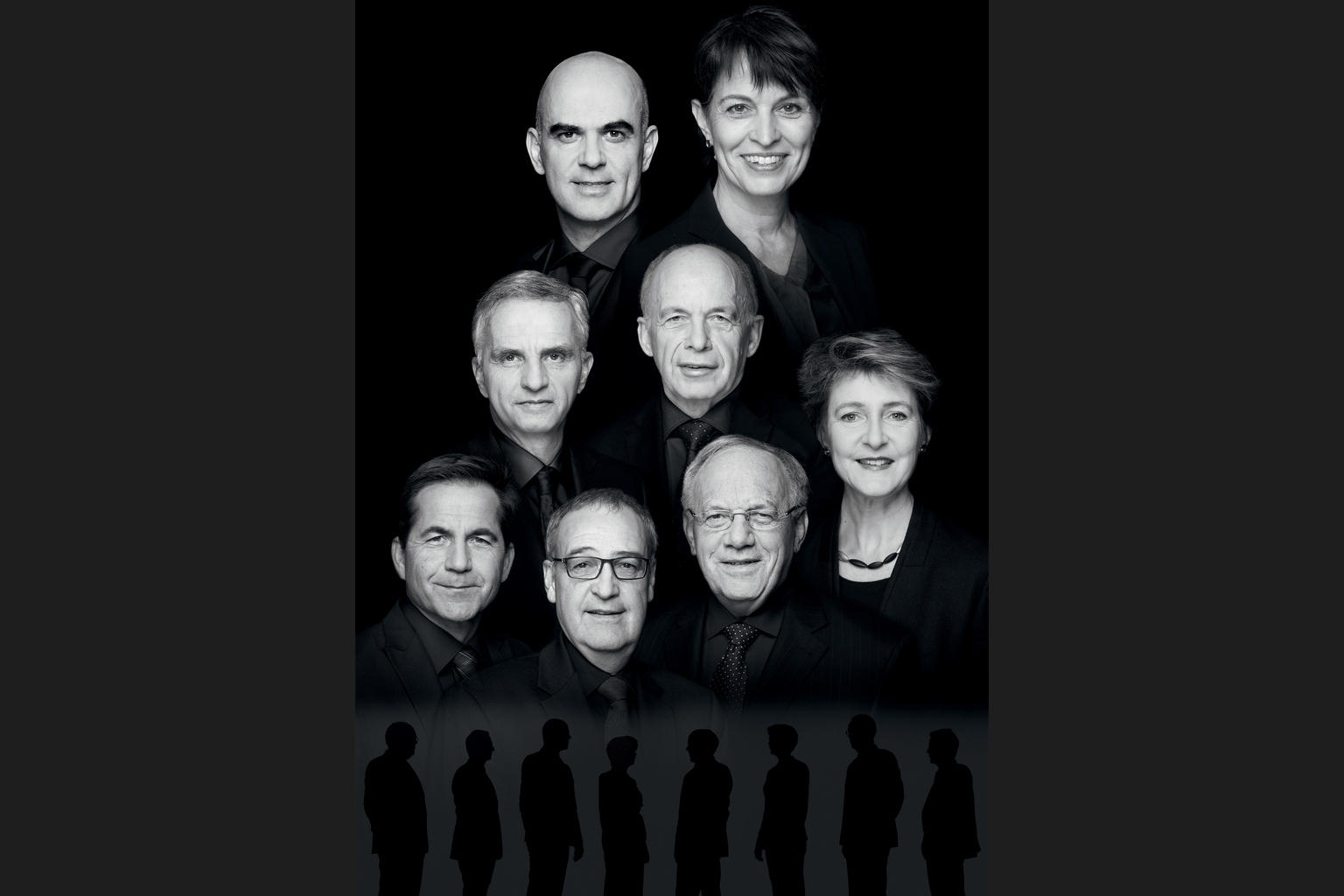
How Switzerland chooses new cabinet ministers

The resignation and replacement of a government minister may not be worth more than a shrug of the shoulders in most countries. Not in Switzerland: the distribution of the portfolios in the seven-member cabinet has its own rules and particularities.
It didn’t take long for pundits to begin speculating about possible successors when Swiss Foreign Minister Didier Burkhalter handed in his notice for personal reasons.
Swiss citizens have no say in the matter, strictly speaking. Parliament chose Ignazio Cassis as Burkhalter’s successor on September 20, and the newly-elected minister will soon meet his six colleagues to decide on the portfolios.
In line with the Swiss consensus policy, they will agree together on a solution in the best interest of the collective government. The idea is to reach a decision in talks without a formal vote and certainly not by decree.
All individual cabinet members are equal in status, not even the president, a largely ceremonial post, has extra powers.

More
Cassis chosen as Switzerland’s new cabinet minister
Seniority and exception
If the seven members agree on the distribution of the ministries the principle of seniority applies.
The longest-serving member is given first choice, followed by the others in order of their election. The newcomer therefore has to wait for his or her turn and must take what’s left. This is a practical lesson in Swiss consensus politics and a lesson in humility, as some have argued.

More
Who will become the next Swiss cabinet minister?
If there’s no agreement on the procedure, the cabinet ministers can decide in a vote based on the majority system.
In 1993, the allocation of cabinet seats apparently had to be decided in a vote and the president at the time put his foot down. The records of the cabinet meetings are not public, so the following is based on hearsay.
Flavio Cotti, the then-newly elected cabinet minister from Ticino, apparently insisted on taking over the foreign ministry, but his Christian Democratic Party colleague, Arnold Koller, had set his eyes on the very same ministry.
Neither of them was willing to compromise and after much discussion Adolf Ogi, who chaired the meeting as president, gave his vote to newcomer Cotti, ending the stalemate. Breaching the rule of seniority, Ogi ignored the fact that Koller had already served in the cabinet for six years.
Against the will
Nearly 20 years later, the newly elected Simonetta Sommaruga couldn’t rely on similar favours or of a majority of her colleagues in cabinet.
Against her own wishes, the Social Democrat was asked to take over the justice ministry in 2010, including the immigration portfolio, making her the sworn political enemy of the Swiss People’s Party.
It could be argued that a member of the rightwing party in the cabinet should have been put in charge of justice and police. But the majority in the seven-member cabinet decided otherwise – and landed a member of a leftwing party with the task.
The case of Sommaruga shows that the Swiss government system is truly unique, according to some. And Sommaruga, a classical pianist without formal training in law, is said to be happy in her post.
Party interests
Party political interests traditionally play a major role in assigning portfolios. To some extent, the four main parties have laid a “claim” for certain ministries – while others have been excluded.
Take the defence ministry: it has never been led by a Social Democrat. This might be a legacy of the past as the leftwing party with its pacifist policies could not be entirely trusted with the task, even after more than 70 years in Switzerland’s multi-party government.
Adapted from German by Urs Geiser

In compliance with the JTI standards
More: SWI swissinfo.ch certified by the Journalism Trust Initiative


























You can find an overview of ongoing debates with our journalists here . Please join us!
If you want to start a conversation about a topic raised in this article or want to report factual errors, email us at english@swissinfo.ch.